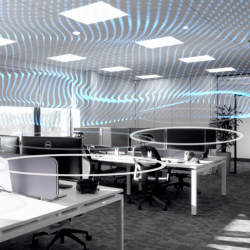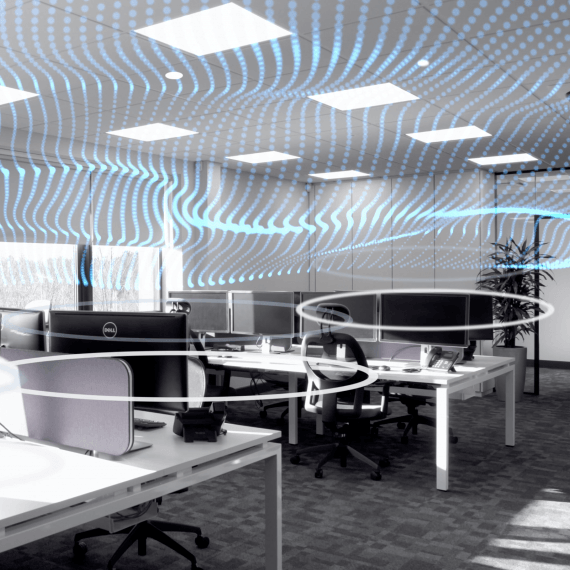March 13, 2019
Noisy workplaces regularly distract and stress out staff
 Over half (52 percent) of workers are interrupted by noise distractions more than five times in a working day, with 17 percent stating that they are interrupted by noise more than 10 times. This is according to the Noise and Wellbeing at Work 2019 survey conducted by The Remark Group, and supported by environmental psychologist and workplace strategist Dr Nigel Oseland, an honorary senior lecturer at UCL’s Institute for Environmental Design and Engineering. In the survey of 1,000 UK-based office workers, 65 percent reported that noise in the workplace impacted on their ability to complete work in an accurate and timely manner. (more…)
Over half (52 percent) of workers are interrupted by noise distractions more than five times in a working day, with 17 percent stating that they are interrupted by noise more than 10 times. This is according to the Noise and Wellbeing at Work 2019 survey conducted by The Remark Group, and supported by environmental psychologist and workplace strategist Dr Nigel Oseland, an honorary senior lecturer at UCL’s Institute for Environmental Design and Engineering. In the survey of 1,000 UK-based office workers, 65 percent reported that noise in the workplace impacted on their ability to complete work in an accurate and timely manner. (more…)













 RICS and CBRE have announced the publication of a new book: Managing Diversity and Inclusion in the Real Estate Sector, which will be launched at
RICS and CBRE have announced the publication of a new book: Managing Diversity and Inclusion in the Real Estate Sector, which will be launched at 






 We might think that an inability to absorb the vast amount of information generated by our fellow humans and their machines is something of a modern phenomenon, but we’ve always known we can have too much of this particular good thing. Distringit librorum multitude, wrote Seneca in the First Century. An abundance of books is a distraction.
We might think that an inability to absorb the vast amount of information generated by our fellow humans and their machines is something of a modern phenomenon, but we’ve always known we can have too much of this particular good thing. Distringit librorum multitude, wrote Seneca in the First Century. An abundance of books is a distraction.














March 8, 2019
On International Woman’s Day – why advancing women is still not a business priority
by Sara Bean • Comment, Legal news, News, Workplace
It has probably not escaped your notice that today is International Woman’s Day, which for Workplace Insight means a plethora of studies on the topic of women/jobs/salaries and ways women might work differently to men. We’ve decided not to waste anyone’s time and ignored most of them (particularly the patronizing ones on how ladies are so intuitive) but managed to find a few kernels of information. First, the good news that women have doubled their share of top jobs at technology companies, pulling in higher salaries than men last year, according to executive search firm Odgers Berndtson. (more…)